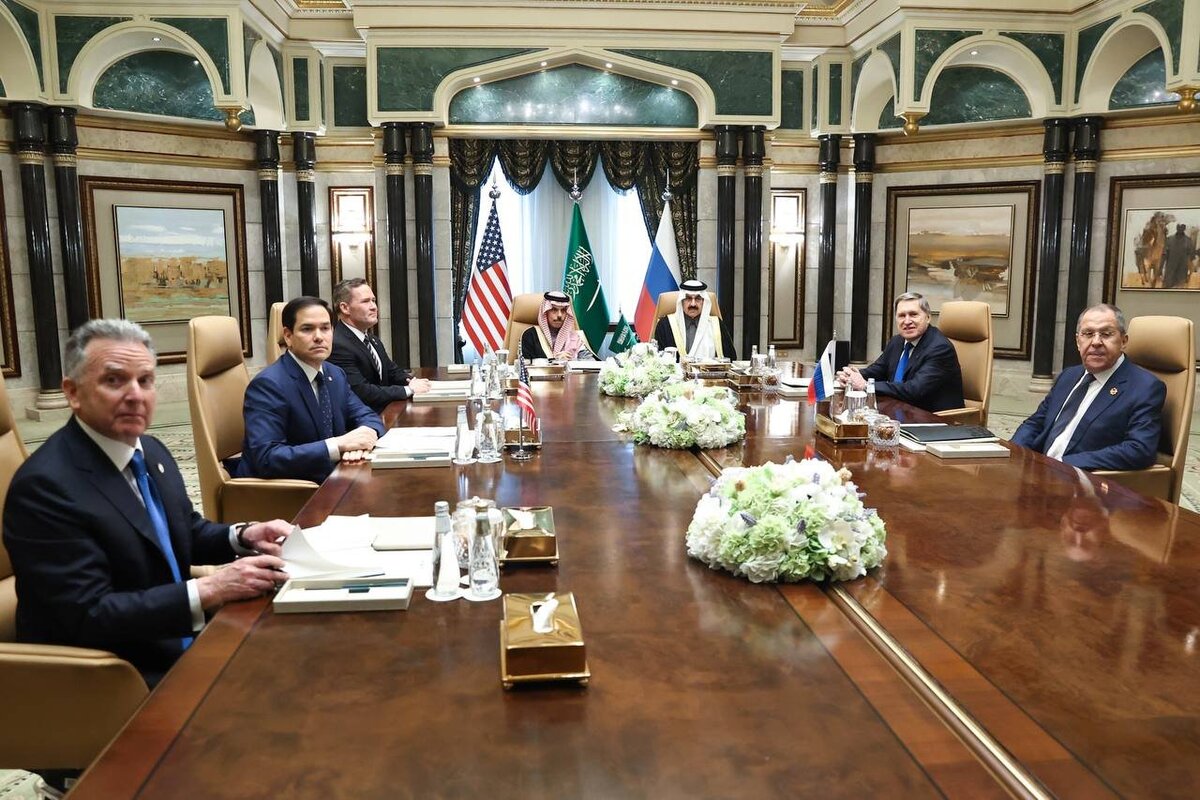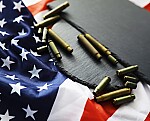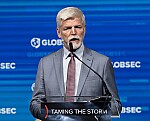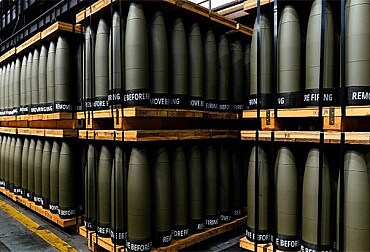About Ukraine without Ukraine. US and Russia begin ceasefire talks, Europe considers sending troops
For the first time since 2022, representatives of the United States and Russia are at the negotiating table. The topic of the meeting in Riyadh was Ukraine and plans for a future ceasefire after the Russian invasion three years ago. But Ukrainian representatives were not invited, a fact that some Western politicians, in addition to Kiev, have criticized. Volodymyr Zelensky says no future plan for a ceasefire can be negotiated without the Ukrainian side. In response, Donald Trump said that Ukraine was complicit in the war and that Zelensky's position inside the country was weak. Zelensky responded that the US president had been swallowed by the Russian disinformation bubble. According to Washington, a meeting between Trump and Vladimir Putin may be coming soon, but no European country has yet received an invitation, not even the leadership of the European Union. The Old Continent is increasingly active in preparing for increased defence spending and the possibility of a US withdrawal of support for Kiev because of the US government's statements. This is also why some European countries are considering sending troops to Ukraine in the future, which they have so far refused to do.

Just one week was enough to fundamentally change the diplomatic scales of the world and change the approach to the Russian aggressor. Three years after the start of Russia's full-scale invasion of Ukraine, Moscow has become a negotiating partner for the first time - thanks to the new US administration of Donald Trump, which has launched talks on a peace deal in Ukraine. But without inviting Ukrainian representatives. It is not only they who now describe the new negotiations, which began in Saudi Arabia, as the much familiar "about us without us" for the Czechs.
"The fact that they are discussing bilateral issues in Saudi Arabia is their right, but in my opinion, the US has helped Putin escape from years of isolation," Volodymyr Zelensky said after a meeting between the US and Russian foreign ministers in Riyadh, according to The Kyiv Independent. Still, he said, Ukraine is ready for anything. But he had already warned at a security conference in Munich that peace could not be achieved without inviting Ukraine to such talks. "Our place at this table is guaranteed and clear first, because the war is in Ukraine," Zelensky told statesmen in Munich, adding that Ukrainians would never accept a peace deal negotiated on their behalf. "We are grateful for all the support, the unity in the U.S. regarding support for Ukraine, from both political poles, we are grateful for all of that, but there is no leader in the world who could make a deal with Putin without us, about us," the Ukrainian president added. A number of European politicians, including German Chancellor Olaf Scholz and Czech President Petr Pavel, hold the same position.
Negotiations on the Russian Invasion of Ukraine, between the U.S. Delegation led by Secretary of State Marco Rubio and the Russian Delegation led by Minister of Foreign Affairs Sergey Lavrov, have begun at the Diriyah Palace in Riyadh, mediated by Saudi Officials. Notably absent… pic.twitter.com/1wFVy7Xctj
— OSINTdefender (@sentdefender) February 18, 2025
US officials reiterated after the meeting with the Russian side that the main goal of the Donald Trump administration is to stop the killing and suffering of civilians and soldiers. "We agreed on the following: we will create a consultative mechanism to address the issues that irritate our relations, with the aim of taking the necessary steps to normalize the functioning of our respective diplomatic missions. We will appoint appropriate high-level teams to begin working toward the earliest possible end to the conflict in Ukraine in a way that is durable, sustainable and acceptable to all parties," U.S. diplomatic chief Marco Rubio outlined future relations with Moscow to reporters after the meeting, without elaborating much on the plan.
"We will lay the groundwork for future cooperation on issues of common geopolitical interest and the historic economic and investment opportunities that will come from a successful end to the conflict in Ukraine," Rubio said, adding that the sides remain in contact. Donald Trump himself then said that his meeting with Vladimir Putin could come very soon.
Washington further escalated the US-Ukrainian relations by accusing Kiev of complicity in Russian military aggression. "Today I heard, 'Oh, we weren't invited.' Well, it's been going on for three years. You should have put an end to it in that time. You should never have started this. You could have made a deal," Trump harassed Zelensky, according to CNN, adding more unsubstantiated information about the Ukrainian president's supposedly weak support, which he said was only 4%. "Unfortunately, President Trump - whom I respect very much as a leader of a nation that we also respect very much; the American people who always support us - unfortunately lives in a disinformation space," Zelensky responded, adding that he wished Trump's team had more information about Ukraine.
Donald Trump, on the other hand, received praise in Moscow. "I think Trump is the first Western leader to say publicly and openly that the cause of the Ukrainian conflict was the previous administration's efforts to expand NATO. No Western leader has said that before. So this is already a signal that he understands our position," Russian Foreign Minister Sergei Lavrov told lawmakers in the Russian Duma.
The change in the American approach to Ukraine and European security as a whole was expected by European leaders, yet they do not hide their disappointment, like Kiev, at the lack of invitations to meetings that directly affect the situation in Europe. This is why there is a growing number of meetings and summits within the EU to prepare for possible scenarios - including the hitherto roundly rejected and unspoken idea of sending European troops to Ukraine to help secure peace. At the forefront of this initiative is the UK, which despite Brexit has recently maintained close contacts with EU leaders in this regard, and France, whose President Emmanuel Macron has been convening one European security meeting after another in Paris.
"I won't go into specific details, but it is clear to me that if there is to be peace, there must be some security guarantee for Ukraine and the UK is ready to play its part in that," British Prime Minister Keir Starmer wrote in an op-ed for The Telegraph. "The end of this war, when it comes, cannot be a temporary pause before Putin strikes again," Starmer added.










